Cause and consequence
While E.H. Carr’s claim that ‘all history is the history of causes’ may have been widely challenged by historians anxious to demonstrate the breadth of their concerns and the range of other important questions to be asked about the past, causal explanation features prominently in history teaching and learning at all stages within the school curriculum. The resources in this section will help teachers to think about the nature of progression in students’ understanding of cause and consequence and to recognise common misconceptions that they may need to address. The materials offer a wide range of practical strategies, as well as insights drawn from historians’ practice and research into students’ understanding, that will help teachers to determine the most useful ways of helping students to develop more powerful causal explanations. Some of them also highlight the need to pay more attention in planning schemes of work to the identification, explanation and evaluation of historical consequences. Read more
-

Using metaphor to highlight causal processes with Year 13
ArticleClick to view -

Film: What's the wisdom on... Consequence
ArticleClick to view -

Using individuals’ stories to help GCSE students to explain change and causation
ArticleClick to view -

Deepening Year 9’s knowledge for better causation arguments
ArticleClick to view -

What’s The Wisdom On... Consequence
ArticleClick to view -

Moving Year 9 towards more complex causal explanations of Holocaust perpetration
ArticleClick to view -

Film: What's the wisdom on... Causation
ArticleClick to view -

Changing thinking about cause
ArticleClick to view -

What’s in a narrative? Unpicking Year 9 narratives of change in Stalin’s Russia
ArticleClick to view -

What’s the wisdom on… Causation
ArticleClick to view -
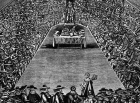
Planning increasingly complex causal models at Key Stage 3
ArticleClick to view -
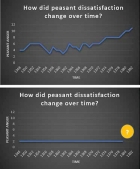
Using diagrammatic representations of counterfactuals to develop causal reasoning
ArticleClick to view -
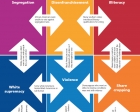
‘Its ultimate pattern was greater than its parts’
ArticleClick to view -

The devil is the detail
ArticleClick to view -

From flight paths to spiders’ webs: developing a progression model for Key Stage 3
ArticleClick to view -

Dealing with the consequences
ArticleClick to view -

Couching counterfactuals in knowledge when explaining the Salem witch trials with Year 13
ArticleClick to view -
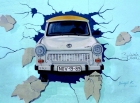
‘If you had told me before that these students were Russians, I would not have believed it’
ArticleClick to view -
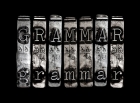
Does the grammatical ‘release the conceptual’?
ArticleClick to view -

Using nominalisation to develop written causal arguments
ArticleClick to view

